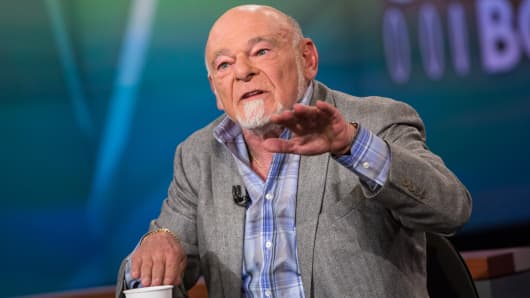If you ask Sam Zell, the basics of business are straightforward.
“It’s largely about risk,” writes the billionaire businessman in his book “Am I Being Too Subtle? Straight Talk From a Business Rebel.”
He continues:
“If you’ve got a big downside and a small upside, run the other way. If you’ve got a big upside and a small downside, do the deal. Always make sure you’re getting paid for the risk you take, and never risk what you cannot afford to lose. Keep it simple. A scenario that takes four steps instead of one means there are three additional opportunities to fail.”

Sam Zell, chairman of Equity Group Investments
Zell, who is the founder and chairman of Equity Group Investments, calls risk “the ultimate differentiator. I have always had a deep and complex relationship with it,” he writes. “I am not a reckless person, but taking risks is really the only way to consistently achieve above-average returns — in life as well as in investments.”
However, he writes, “I am probably more comfortable with risk than most people. That’s because I do as much as I can to understand it. To me, risk-taking rests on the ability to see all the variables and then identify the ones that will make or break you.”
Over decades running companies and evaluating risk, he writes that he’s found many people make the same mistake: They’re too focused on what happens if everything goes right.
Zell writes:
“Sure, I’m always looking for unlocked potential, for strong fundamentals in a business that suggest a high probability of success. But everybody wants to look at how good a deal can get. People love focusing on the upside. That’s where the fun is. What amazes me is how superficially they consider the downside. For me, the calculation in making a deal starts with the downside. If I can identify that, then I understand the risk I’m taking. What’s the outcome if everything goes wrong? What actions would we take? Can I bear the cost? Can I survive it?”
In addition to looking at worst-case scenarios, he writes, “I look at how hard something is to execute. The simpler the goals and the steps to reach them, the more likely I’ll be successful. And if they aren’t simple to begin with, I look at how I can untangle the complexities.”
That’s not to say that he can foresee every single possible future outcome. That would be predicting the future, and no one can do that. But when it comes to risk, Zell explains, he gets all the information he can — and then he takes the leap.
Courtesy Newsrep








